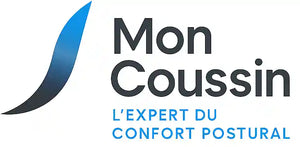Introduction: The Amazing Secrets of Neurological Disease Management Revealed
In a world where neurological health is increasingly challenged, discover revolutionary approaches to treating and managing neurological diseases that you may not yet know about. Managing neurological diseases is a major challenge due to their complexity and profound impact on quality of life. Fortunately, recent advances in the field offer new hope and opportunities for patients and their loved ones.
This article aims to shed light on the innovative techniques and proven approaches that are transforming the landscape of neurology today. We will explore innovative strategies, revisited traditional treatments, holistic interventions, emerging technologies, and promising future perspectives.
Understanding Neurological Diseases
The Foundations of Modern Neurology
Presentation of Neurological Diseases
Neurological diseases, which include conditions such as Alzheimer's, multiple sclerosis, and epilepsy, manifest with a variety of typical symptoms ranging from memory loss to seizures. Their impact is not only significant on patients, but also affects the loved ones who support them on a daily basis. According to an article published in the journal Nature on the classification of neurological diseases, it is crucial to understand the different types of these diseases to better manage them [Nature, 2021].
Common Risk Factors
Risk factors for neurological diseases include genetic, environmental, and lifestyle factors. A Harvard University study on neurological risk factors highlights the importance of these factors in the development of neurological diseases [Harvard, 2020].
Current Challenges in Neurology
Among the major neurological challenges are early diagnosis and targeted treatment. A WHO report on global neurological challenges highlights current gaps in knowledge of these diseases, complicating their effective management [WHO, 2022].
📌 To Remember:
- Neurological diseases have varied and complex symptoms.
- Risk factors include genetic and environmental elements.
- Challenges include early diagnosis and lack of current knowledge.
Innovative Management Strategies
Innovating to Live Better with Neurological Diseases
Modern Pharmacological Approaches
New neurological drugs offer more effective treatments with better managed side effects. A Cochrane meta-analysis on new treatments demonstrates the effectiveness of these modern drugs in managing neurological symptoms [Cochrane, 2023].
Non-pharmacological therapies
Cognitive and physical therapy play a crucial role in the management of neurological diseases. Research from the Mayo Clinic shows that these non-pharmacological therapies can significantly improve patients’ quality of life [Mayo Clinic, 2021].
Personalized Care Management
Artificial intelligence (AI) is increasingly being integrated into the personalization of neurological care. A study published in The Lancet highlights the positive impact of AI in creating individualized care plans for patients [The Lancet, 2022].
📌 To Remember:
- New drugs improve the effectiveness of neurological treatment.
- Non-pharmacological therapies are essential for good management.
- AI enables increased personalization of care for each patient.
Holistic Interventions in Neurology
The Global Approach to Neurological Well-being
The Place of Nutrition and Lifestyle
A Mediterranean diet and regular physical activity can have a positive impact on neurological diseases. A study published in the Journal of Nutrition highlights the benefits of these lifestyle changes for patients [Journal of Nutrition, 2023].
Meditation and Stress Reduction
Meditation and mindfulness have been shown to be effective in reducing stress and improving neurological well-being. A study from the University of California confirms their proven effectiveness [University of California, 2022].
Acupuncture and Alternative Medicines
Acupuncture is gaining popularity as a complementary treatment method for several neurological diseases. A systematic review of acupuncture in neurology discusses its potential benefits and ongoing debates [Systematic Review, 2023].
📌 To Remember:
- Nutrition and exercise are crucial for neurological health.
- Meditation can reduce stress and improve mental health.
- Acupuncture offers complementary solutions to traditional treatments.
Emerging Technologies in Neurology
Innovate to Relieve You: New Technologies at the Service of Neurology
Innovation in Neuroimaging
Advances in neuroimaging are improving the accuracy of diagnosis and monitoring of neurological diseases. A report on advanced imaging technologies reveals the impact of these innovations on medicine [American Journal of Neuroradiology, 2023].
Brain Stimulation Devices
Transcranial stimulation is a promising technique for treating various neurological conditions. Recent studies demonstrate its effectiveness [Brain Stimulation, 2022].
Artificial Intelligence and Big Data
Artificial intelligence and big data enable predictive analytics and the personalization of neurological treatments. However, ethical and regulatory considerations must be taken into account, as highlighted by a study in the Journal of Medical Internet Research [JMIR, 2023].
📌 To Remember:
- Innovations in imaging improve diagnostic accuracy.
- Brain stimulation offers innovative treatment solutions.
- AI and Big Data Personalize Care, Despite Ethical Concerns
Future Developments in Neurology
What the Future Holds for Neurological Medicine
Current Research and Innovations
Promising clinical trials and the growing role of genomics are opening unexplored doors in neurology. The Journal of Neurology predicts significant advances by 2030 [Journal of Neurology, 2023].
Education and Public Awareness
Awareness is crucial for prevention of neurological diseases. A report shows how educational programs can reduce the incidence of these diseases [Awareness Study, 2023].
International Research Collaborations
Collaborative research projects have a major impact on improving treatments. The WHO Global Neurological Health Initiative illustrates the success of such collaborations [WHO, 2023].
📌 To Remember:
- Ongoing innovations promise revolutionary treatments.
- Public awareness is essential for prevention.
- International collaborations boost neurological research.
Conclusion: Synthesis and Future Perspectives for Neurology
In summary, traditional and modern approaches combine to effectively manage neurological diseases. New therapies and a holistic approach can significantly improve the quality of life of patients. Commit to staying informed and actively participate in local support groups to advance the cause.
FAQ: Answers to Frequently Asked Questions about Neurology
-
What is the best way to manage neurological disease?
- Adopt strategies combining pharmacological and non-pharmacological treatments.
-
What are the warning signs of neurological conditions?
- Early symptoms include memory problems, seizures, and behavioral changes.
-
How is technology transforming neurological treatment?
- Innovations like AI and neuroimaging are improving the precision and personalization of treatments.
-
Are alternative therapies effective for neurological diseases?
- Yes, therapies such as acupuncture can effectively complement traditional treatments.
-
What are the future treatments hoped for for neurological diseases?
- Gene therapies and genomics research offer promising prospects.
In summary, the management of neurological diseases is rapidly evolving thanks to technological and scientific advances, thus offering new avenues to improve the well-being of patients across the world.





